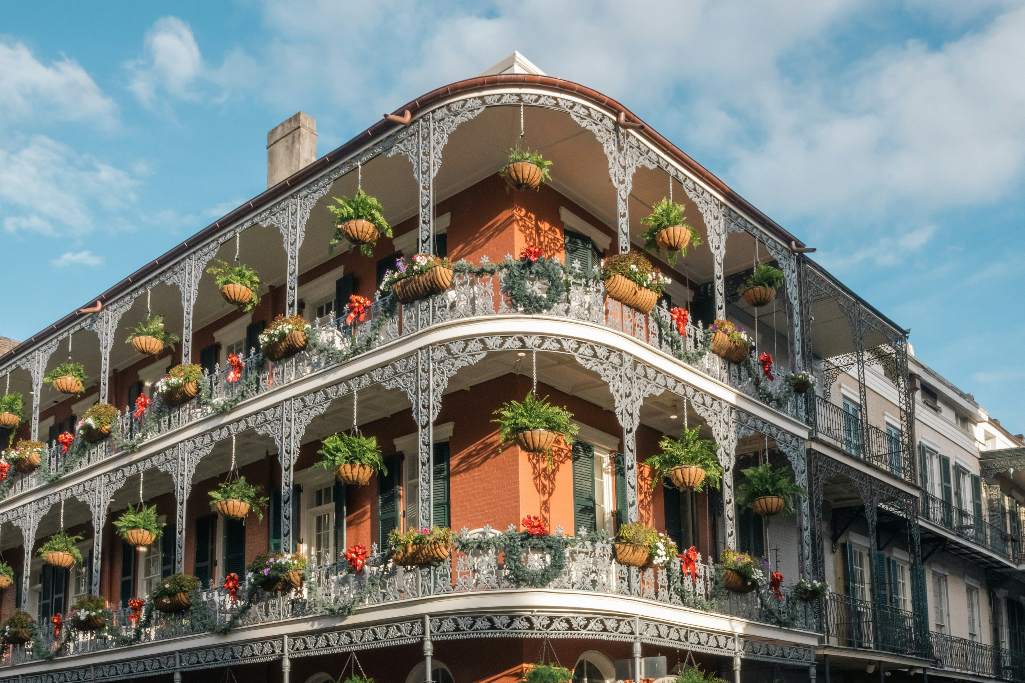
Our family carries deep affection for New Orleans.
My wife Michele and I moved there as students at New Orleans Baptist Theological Seminary when we were 25 years old, and we were captured by the city’s hospitality and warmth. In our time there, we made lifelong friends and welcomed our only son into the world.
Over the years, we’ve returned often, each visit reaffirming just how unique New Orleans is, with its vibrant spirit and incredible people. So, when we learned about the brutal attack in New Orleans — leaving 14 people dead and dozens injured — our hearts broke for the families affected and for a city we love.
The grief and tragedy that greeted New Orleans on New Year’s Day — which will sadly but inevitably be echoed in other places throughout the coming year — reminded me of the promise Jesus gave His disciples in John 16:33: “I have said these things to you, that in me you may have peace. In the world you will have tribulation. But take heart; I have overcome the world.”
Imagine someone showing you two photos. In both, the woman at the center wears a soft smile on her face and a steady gaze in her eyes. Her arms and shoulders are relaxed. Her posture is serene. But the similarities end there.
In one image, the woman stands in a meadow covered with lush green grass, dotted with swaying wildflowers, the sun streaming down on her shoulders. In the other, she is surrounded by a jagged, rocky landscape. Her footing is uneven. Lightning flashes in the darkened sky above. The horizon is shrouded by a damp blanket of fog.
Which of these pictures represents peace?
You might be tempted to say, “The one with the sunny meadow.” But Jesus gives a different answer. Based on His words, the more authentically peaceful picture shows someone surrounded by turmoil and threat, yet still calm and confident.
“In the world you will have tribulation,” Jesus said, but “in me you may have peace.”
Most people experience a measure of superficial peace when the skies are blue and the breezes are gentle, even if they don’t know Christ. But for believers, God’s peace runs deeper, no matter what our circumstances.
The Bible speaks of God’s peace in three ways:
1. Peace with God comes when we place our trust in Jesus Christ to forgive our sins and give us God’s gift of eternal life. Paul described this kind of peace in Romans 5:1: “Since we have been justified by faith, we have peace with God through our Lord Jesus Christ.”
2. The peace of God comes when we bring our anxieties to the Lord in prayer. Philippians 4:6-7 encourages us: “Do not be anxious about anything, but in everything by prayer and supplication with thanksgiving let your requests be made known to God. And the peace of God, which surpasses all understanding, will guard your hearts and your minds in Christ Jesus.”
3. Peace on earth comes when we lay down our conflicts with one another and surrender ourselves fully to Jesus Christ. This peace, announced by the angels at Jesus’ birth in Luke 2:14, will only come perfectly and universally when Jesus returns to establish His kingdom. Yet it is available to us right now as we place Christ at the center of our marriages, families, churches and other relationships.
As you begin this new year, Jesus Christ can give you every facet of God’s peace. Today, you can pray for God’s peace to rest upon New Orleans and on every other place and person facing turmoil. You can thank Jesus for making peace with God possible through His sacrificial death on the cross.
While we know the coming year will bring challenges and trials, we can ask God to guard our hearts with His peace. And, through the power of Jesus, we can also pray for God’s grace to live at peace with those around us.
(EDITOR’S NOTE — Stephen Rummage is executive director-treasurer of the Florida Baptist Convention. He has served as pastor of churches in North Carolina, Louisiana, Oklahoma and Florida.)


